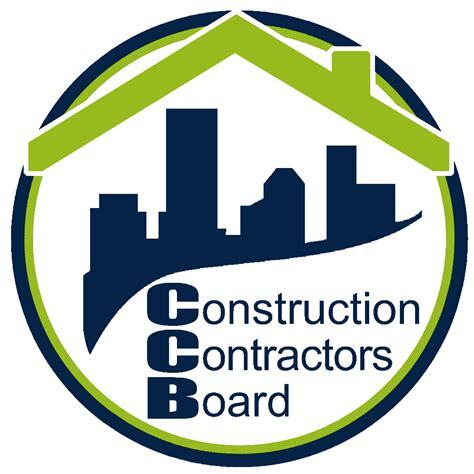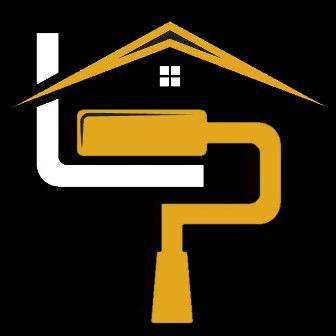Licensed, Bonded, Insured: What It Means

Key Features
- Financial Protection with Bonding: Ensures you won’t incur financial losses if the contractor fails to complete the job.
- Liability Insurance for Peace of Mind: Covers damages or accidents that occur on your property.
- State-Mandated Licensing: Proves the contractor has met qualifications and adheres to local regulations.
Licensed, Bonded, Insured
When hiring contractors for your next project, you’ll probably see the phrase “licensed, bonded, insured” tossed around a lot. But what does it really mean, and why is it so important? I can’t stress enough how crucial it is to understand these terms before hiring anyone—whether it’s a painter, roofer, or general contractor. Each piece of this trifecta—licensing, bonding, and insurance—serves a specific role in protecting you and ensuring the contractor is legitimate. Let’s break it all down.
What Does It Mean to Be Licensed?
When a contractor is licensed, it means they’ve met specific state or local government requirements to legally operate in that trade or profession. A license proves that the contractor has the necessary skills and knowledge to perform their job correctly and safely.
- Trade-Specific Testing: Most states require contractors to pass an exam to prove they understand safety codes, laws, and industry standards.
- Ongoing Education: Many licenses need to be renewed periodically, often requiring continuing education to keep up with the latest developments in the field.
- State Oversight: Licensed contractors are regulated by a licensing board, which ensures they comply with standards and can discipline them if they don’t.
Why does this matter? If a contractor is licensed, you know they’ve met a baseline of competency. Without that, you’re risking unqualified work that could lead to costly repairs down the road.
Things to Know
- Licensed Contractors Adhere to Regulations: Licensing ensures contractors meet state standards.
- Bonding Protects Against Incomplete Work: If the job isn’t finished, the bond compensates homeowners.
- Insurance Covers Damages and Injuries: Liability and worker’s comp insurance keep homeowners protected.
- Verify Credentials Directly: Always request and confirm licenses, bonds, and insurance policies.
- Avoid Risk with the Right Contractor: Choose professionals with all three protections for safe, quality work.
What Does It Mean to Be Bonded?
When a contractor is bonded, it means they’ve secured a surety bond—essentially a guarantee that the work will be done according to the contract. If the contractor fails to complete the job, the bond can compensate the client for financial losses. Think of it as a safety net for homeowners.
- Financial Protection: If the contractor doesn’t finish the job or if something goes wrong, the bond ensures you won’t be stuck paying for incomplete work.
- Accountability: Bonding gives contractors a financial incentive to follow through on their agreements.
- Legal Requirement: Some states and municipalities require contractors to be bonded as part of their licensing process.
Bonding is crucial if you’re hiring for a large-scale project—like a remodel or major exterior paint job—because it ensures that if the contractor bails, you’re not left high and dry.
Why Insurance Matters: The Final Layer of Protection
A contractor who’s insured has liability insurance and, ideally, workers' compensation coverage. This protects both the homeowner and the contractor in case something goes wrong on the job.
- Liability Insurance: If the contractor accidentally damages your property, their insurance covers the repair costs.
- Workers' Compensation: If an employee gets injured while working on your property, workers' comp ensures you aren’t held financially responsible for medical bills or lost wages.
- Peace of Mind: Hiring an insured contractor ensures that you’re protected from unexpected costs, giving you peace of mind throughout the project.
Without insurance, you could be on the hook for costly repairs or lawsuits. Always ask for proof of insurance and verify it’s up to date.
Why All Three—Licensed, Bonded, and Insured—Matter Together
You might find contractors who are licensed but not bonded, or insured but unlicensed. Don’t settle for less than all three.
- Licensed means the contractor knows their stuff.
- Bonded means you’re financially protected if the job isn’t completed.
- Insured means you won’t be responsible for accidents or damages.
When all three are in place, you’ve got a contractor who’s legitimate, accountable, and responsible.
How to Verify a Contractor’s Credentials
It’s one thing for a contractor to claim they’re licensed, bonded, and insured—it’s another to know for sure. Here’s how you can verify their status:
- Head to Our Home Page: We have a direct portal to the ccb website so you can just type in the lic. # and it will show you the status of any contractor in Oregon.
- Ask for License Numbers: Most states have online databases where you can search for contractors by license number.
- Request Bond Documentation: Contractors should provide documentation showing they have a valid bond in place.
- Contact the Insurance Company: Don’t just take the contractor’s word for it—call their insurance company to confirm they have active coverage.
If a contractor hesitates to provide proof, consider it a red flag. Legitimate professionals won’t have an issue sharing their credentials.
In Our Experience
Working with contractors over the years, we’ve seen that those who are licensed, bonded, and insured consistently deliver better results. They are accountable, qualified, and prepared for unexpected issues. Homeowners avoid costly pitfalls by choosing professionals with all three protections.
What Happens if You Hire Someone Without These Protections?
Hiring an unlicensed, uninsured, or unbonded contractor might save you a few bucks upfront, but it can cost you big in the long run. Here’s what you risk:
- Shoddy Work: Without a license, there’s no guarantee the contractor knows what they’re doing.
- Out-of-Pocket Repairs: If something goes wrong, you’ll likely have to cover the repair costs yourself.
- Legal Trouble: If a worker gets hurt on your property, you could be sued for damages if the contractor doesn’t have insurance.
It’s simply not worth the risk. Spending a little extra for a contractor who’s licensed, bonded, and insured is a wise investment in the safety and success of your project.
When to Walk Away
If you’re getting quotes from multiple contractors, and one isn’t licensed, bonded, or insured, it’s best to walk away. Even if their price seems attractive, you’re gambling with your project and your finances. There are plenty of legitimate contractors out there—don’t settle for less just to save a few dollars.
Final Thoughts: Protect Yourself with Licensed, Bonded, and Insured Contractors
At the end of the day, hiring a contractor who’s licensed, bonded, and insured isn’t just about following the rules—it’s about protecting yourself and your investment. With these three protections in place, you can rest easy knowing your project is in good hands.
Next time you hire someone, don’t hesitate to ask, “Are you licensed, bonded, and insured?” It’s a small step that can save you a lot of headaches down the road.
Do You Have Questions? Give Us A Call With Any & All! 503-389-5758
-
People Also Ask:
Why is it important to hire a licensed, bonded, and insured contractor?
These three protections ensure the contractor is qualified, accountable, and carries insurance to protect against damages and accidents.
What happens if you hire an unlicensed contractor?
You risk poor-quality work, legal issues, and financial responsibility for accidents or unfinished jobs.
How can I verify if a contractor is licensed, bonded, and insured?
Ask for license numbers, bond documentation, and proof of insurance, and confirm these details through state databases and insurance providers.
-
SUBSCRIBE TO OUR BLOG: Stay informed with the latest in Painting and DIY projects by subscribing to Lightmen Painting. Get insights, tips, and more delivered straight to your inbox. We would also love to know what you would like to read about, leave thoughts on where we should go next. Interests, Topics, Ideas, all are welcome.
If your in the Portland, Or. area and need advice or a free no obligation estimate call us at 503-389-5758 or email scheduling@lightmenpainting.com
Shout Out:
Celebrating Nelson J. Greer Painting Contractors: Transforming Spaces with Expertise
From the team at Lightmen Painting, we extend our highest praise to Nelson J. Greer Painting Contractors for their dedication to delivering exceptional painting services. Whether it’s whitewashing exterior brick or giving your home a fresh new look, they provide expert techniques and attention to detail that ensure outstanding results. Their commitment to quality craftsmanship and customer satisfaction aligns perfectly with our mission to enhance and beautify environments.
Thanks for stopping by Lightmen Daily! Stay tuned for more practical tips and expert advice on making your painting projects flawless, from wall to floor!
Definitions
- Licensed Contractor: A contractor authorized by the state to perform a specific trade after meeting qualifications.
- Bonded Contractor: A contractor with a surety bond that provides financial protection if the job isn’t completed correctly.
- Insured Contractor: A contractor with liability and worker’s compensation insurance to cover damages and injuries.
- Surety Bond: A guarantee that protects the homeowner if the contractor fails to fulfill the contract.
- Liability Insurance: Coverage for property damage caused by the contractor during the project.
- Workers’ Compensation: Insurance covering medical expenses and wages for injured workers on your property.
- State Licensing Board: A regulatory body ensuring contractors meet professional standards.
- Proof of Insurance: Documentation confirming the contractor’s insurance coverage.
- Financial Accountability: A benefit of bonding, ensuring the contractor follows through with the job.
- Contractor Database: An online tool to verify licensing, bonding, and insurance status.
Lightmen Painting Serving: Portland, Tigard, Lake Oswego, Tualatin, West Linn, Milwaukie, Sherwood, Happy Valley, Oregon City, Beaverton, Hillsboro, Gresham -Trade Partners-

